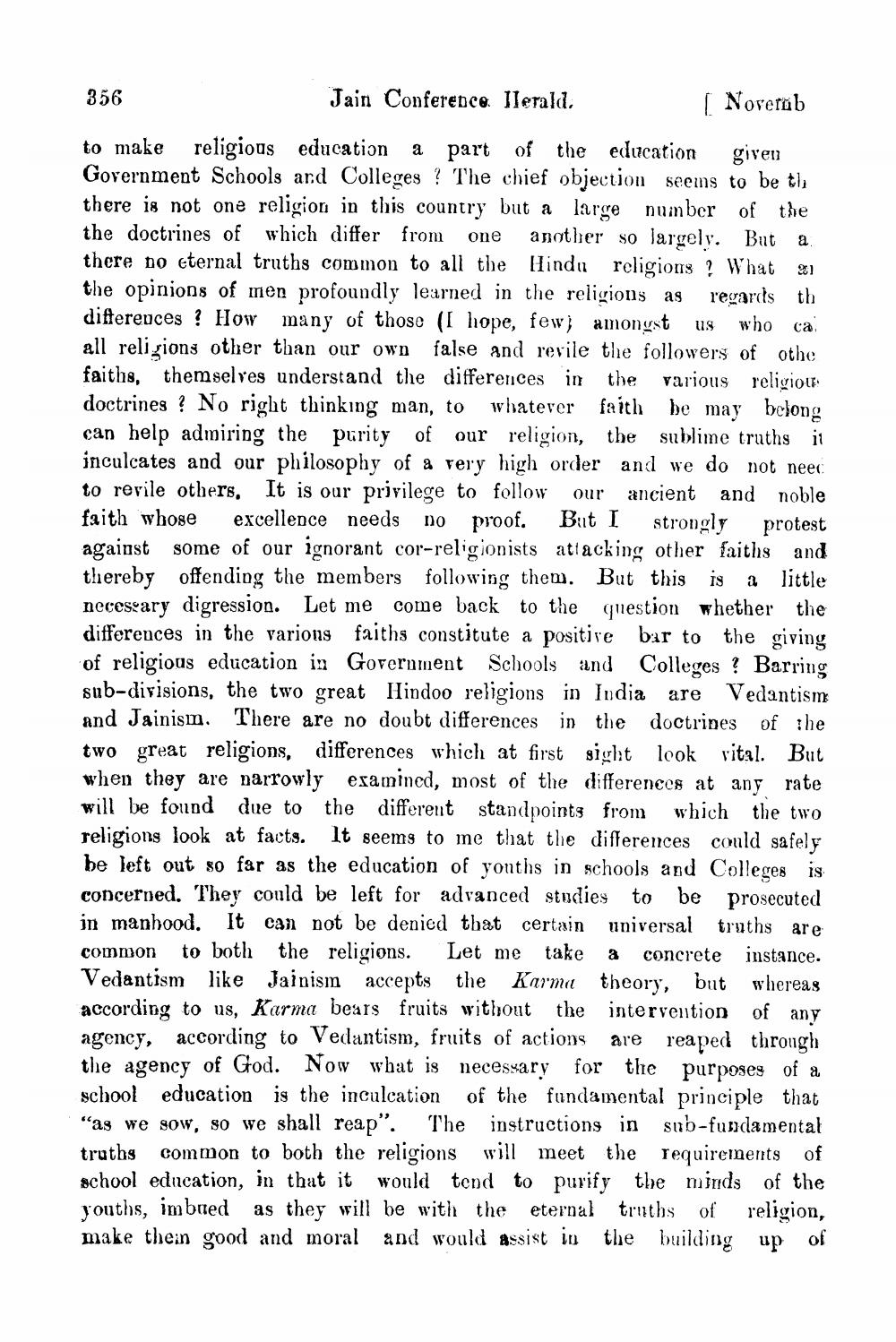________________
356
Jain Conference. llerald.
[ Novetab
to make religious education a part of the education given Government Schools ard Colleges ? The chief objection seems to be the there is not one religion in this country but a large number of the the doctrines of which differ from one another so largely. But a there no eternal truths common to all the Hindu religions ? What 21 the opinions of men profoundly learned in the religions as regards th differences ? How many of those (I hope, few; amongst us who ca all religions other than our own false and revile the followers of othe faiths, themselves understand the differences in the various religious doctrines ? No right thinking man, to whatever faith be may belong can help admiring the purity of our religion, the sublime truths in inculcates and our philosophy of a very high order and we do not need to revile others. It is our privilege to follow our ancient and noble faith whose excellence needs no proof. But I strongly protest against some of our ignorant cor-religionists attacking other faiths and thereby offending the members following them. But this is a little necessary digression. Let me come back to the question whether the differences in the various faiths constitute a positive bar to the giving of religious education in Government Schools and Colleges ? Barring sub-divisions, the two great Hindoo religions in India are Vedantism and Jainism. There are no doubt differences in the doctrines of the two great religions, differences which at first sight look vital. But when they are narrowly examined, most of the differences at any rate will be found due to the different standpoints from which the two religions look at facts. It seems to me that the differences could safely be left out so far as the education of vonths in schools and Colleges is concerned. They could be left for advanced studies to be prosecuted in manhood. It can not be denied that certain universal truths are common to both the religions. Let me take a concrete instance. Vedantism like Jainism accepts the Karma theory, but whereas according to us, Karma bears fruits without the intervention of any agency, according to Vedantism, fruits of actions are reaped through the agency of God. Now what is necessary for the purposes of a school education is the inculcation of the fundamental principle that “as we sow, so we shall reap". The instructions in sub-fundamental truths common to both the religions will meet the requirements of school education, in that it would tend to purify the minds of the youths, imbued as they will be with the eternal truths of religion, make thein good and moral and would assist in the building up of




